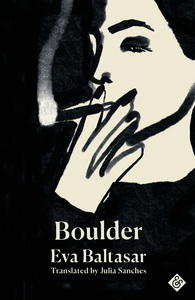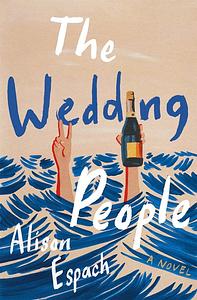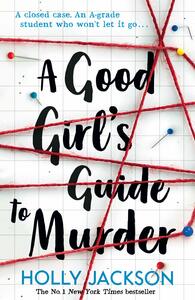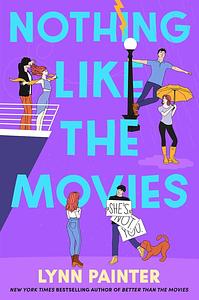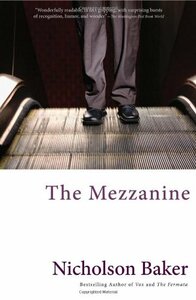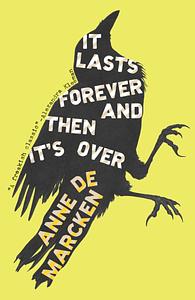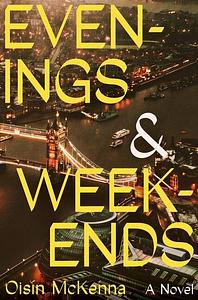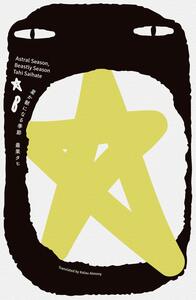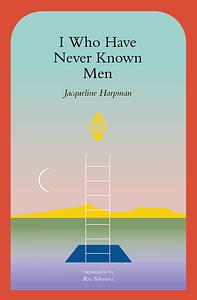Take a photo of a barcode or cover
documentno_is's Reviews (1.28k)
challenging
dark
reflective
tense
The narrator of the novel is harsh and brusque, not immediately very sympathetic but refreshingly honest and frank. I appreciated how in tune with their wants and desires they both were, and felt sad sort of knowing it was doomed when they didn't line up. I'm not sure if I enjoyed the ending, it was depressing how it ended up but it was also completely expected because of their lack of communication and the way the narrator approached the relationship. The emotionally detached quality of the prose actually fit the characterization of the protagonist well and I appreciated the believability of their situation. I really appreciated this book's emboldened intention of tackling unsavory topics- infidelity, dissatisfaction with parenthood, depression, etc. Initially when I first started this novel I was frustrated with the narrator's lack of emotional connection, the way the character repelled responsibility was frustrating but also it was clearly out of a desire for freedom. The book treated parenthood as largely neutral, and at times made it seem so reprehensibly ugly and other times through the connection with Tinna it seemed beautiful in its simplicity. I certainly did not enjoy reading this novel but I feel somewhat changed by it, it was very powerful.
adventurous
emotional
hopeful
inspiring
fast-paced
Plot or Character Driven:
A mix
Strong character development:
Yes
Loveable characters:
Yes
Diverse cast of characters:
No
In the most manufactured way possible- this book was really impossible not to like. The quintessential summer book club, moms with wine, just literary enough but not enough to make your head hurt or question any fundamental truths. This is only further verified as characters admit their flaws- an academic who was pretending to be a marxist, a rich socialite who wants to be validated for wanting things done a certain way, a grieving man just hoping to break through the banality of his existence. I think in a lot of ways whats exalted in some of the themes of this novel is whats wrong, or broken, in American society. It says- its okay to be honest and sin just a little, as long as you feel joy about it. Yet, obviously I must admit it did feel to lean into it a little, yes of course i like it its a formula of cliches for a specific emotional response like every romance book before it, its the sleeve of oreos I just can't stop eating. Still, she pushes back a little in the end and says its not okay to just go along with the things that are happening in your life you have to have the impetus to stop the moving train. The novel supposes that we owe ourselves a certain honesty, and that we can change some of the things that make us unhappy. I wish the novel had gone on to further criticize the capitalist systems that create inescapable consumerism or lack of satisfaction but thats not really what this book set out to do. This book set out to be a warm hug from a friend you care about, patting you on the back and saying you're going to be okay. I appreciate it for what it is, and it was a breeze to read, but its a rather shallow analysis of life and aging so I wouldn't expect too much from it.
Didn't like the narrative style- didn't seem worth finishing
emotional
reflective
sad
fast-paced
Plot or Character Driven:
A mix
Strong character development:
Yes
Loveable characters:
Yes
Diverse cast of characters:
No
Flaws of characters a main focus:
Yes
Not nearly as good as its predecessor but couldn't help absolutely blowing through this series.
funny
informative
reflective
relaxing
slow-paced
Plot or Character Driven:
Plot
Strong character development:
No
Loveable characters:
Complicated
Diverse cast of characters:
No
Flaws of characters a main focus:
No
I was completely captivated by The Mezzanine, especially since I had never heard of Baker. Structurally, this novel is incredible; a story about an escalator ride that also contains a frame narrative of buying some shoelaces that is really about design and memory. This novel is maybe the strongest case I’ve seen for not killing your darlings, there is hardly a plot or story at all and yet it manages to say so much about the smallest moments. At the line level the novel is incredible- just as likely to produce a full bellied laugh from me as twinkling appreciation- I was enraptured by Baker’s poetic thoughts on objects. This novel included some of the most captivating sentences I’ve had the pleasure of reading about somebody’s surroundings.
For example- “ I felt myself rise into its shape: my hand turned gold, coronas of stage-struck protein iridescent from my eyelashes; and one hinge of my glasses began to sparkle for attention. “
The way that he changed verbs to fit the context of their usage was incredible and in researching him and realizing he’s an erotica writer I think this makes a lot of sense. Stylistically his insistence and interest in footnotes that he describes in detail in the later portion of the book fits well with my acquiring his background of interest in wikipedia as a contributor. Honestly if this novel has a shortcoming its insistence on its forced nostalgia, closed male perspective of the outside word. He has the ability to wax on philosophy gained from Penguin classics but not the forethought to not conflate a cashier being Pakistani or Indian (when he flips between both descriptions of the same cashier ) and I can’t help but be bothered by these assertions. Yet just as often as I was bothered by his limited perspective I would be completely drawn out by the genius of his observations in other regards. I spent a good portion of my day laughing over his list of the amount of times he thought about specific topics. Honestly, in reference to its better parts this book reminded me a lot of the user experience bible- The Design of Everyday Things and did a much better job at conveying the memories and essential functions of small every day objects. I initially sought out this novel due to its premise of happening within a single elevator ride and feel that I learned a lot about how to use and crunch periods of time within a narrative for your purpose. In the same vein I wonder if those who read to examine the craft of writing would get more out of this than those who read for the inherent compelling nature of storytelling, unless they had some particular nostalgia for the past and the changing nature of household objects.
funny
hopeful
lighthearted
medium-paced
Plot or Character Driven:
A mix
Strong character development:
Yes
Loveable characters:
Yes
Diverse cast of characters:
No
Flaws of characters a main focus:
Yes
Lynn Painter is as usual better than I expect- heartwarming well rounded characters and fantastic plot sense I couldn’t put this down and finished it in a single sitting. A great example of how to write complex teen characters that don't seem overly mature or immature for their age.
adventurous
challenging
emotional
mysterious
reflective
sad
tense
fast-paced
Plot or Character Driven:
A mix
Strong character development:
Complicated
Loveable characters:
Complicated
Diverse cast of characters:
N/A
Flaws of characters a main focus:
No
I'm not exactly sure how I felt about this novel- my reception feels lukewarm but it had some interesting topics to mull over. I think some of the potential of this novel is predicated on its uniqueness so if you've read other similar stories it loses some of its magic. It felt in some ways like a forced poignance- with all the motifs and resources of an incredible tale to humanity that ended up being just okay. I think it was a little drawn down by its simplicity, and its childlike wonder didn't add much to the backstory that this character has already lived a life they can barely remember.
Some of the most interesting things about this novel were its perspective.Specifically, after the protagonist has their head cut off I think its similar to the arm how the narrator can then regard their body as both separate and memory. The motivations of this character relied a lot on grief of a past life, but without the details or set up of the life in question its hard to become invested in their story in any meaningful way. Given the mechanics of grief without the object of grief was a weird narrative perspective, it almost increased my melancholy that the narrator only remembered this person they missed as a series of events or objective things they experienced rather than who they were. This story left me feeling rather empty- maybe that was its intention.
Some of the most interesting things about this novel were its perspective.
adventurous
challenging
emotional
hopeful
inspiring
lighthearted
sad
fast-paced
Plot or Character Driven:
Character
Strong character development:
Yes
Loveable characters:
Yes
Diverse cast of characters:
Complicated
Flaws of characters a main focus:
Yes
The aimless ennui of being in your late twenties, with a large focus on a few different kind of queer relationships and family dynamics. I really loved how McKenna crafted this assortment of characters, how they all weaved in and out of each other's lives. This novel has a rather condensed time span for the bulk and then transitions into broader strokes for much of the final chapter. Sometimes feels like it's trying to hit on a variety of topics and does so in unnatural ways (when the abortion part gives a sort of pedantic explanation of the state of abortion in Europe- not saying this isn't valuable information it just felt a little forced and maybe most interestingly more forced than the chapters about the whale.) In contrast, my favorite chapters were Maggie & Phil ruminating on parenthood and aging and how these topics feel in queer relationships. The writing style is simple yet poignant, and has a listlessness that ties in well with the subject matter; the third person POV gives enough detachment for the way the story introduces moments between characters that happened in the past. I feel excited to read more of McKenna's work.
dark
emotional
lighthearted
mysterious
reflective
fast-paced
Plot or Character Driven:
A mix
Strong character development:
No
Loveable characters:
No
Diverse cast of characters:
No
Flaws of characters a main focus:
Yes
This book was so engrossing and interesting I was captivated from the beginning. Honestly, with a little guilt, this book made me feel everything I expected to when reading Sayaka Murata and didn't.
This novel plays a lot with expectations and reality
There’s the societal expectation
The characters expectations
The narrative/readers expectations and then, what actually happens which is occasionally a divergence from all of the above.
The different perspectives and emotions surrounding horrific acts were intriguing, and the way that the characters felt differently about the role of an idol as well. In some ways it reminded me of perfect blue but it had a more detached feeling to it.
The different perspectives and emotions surrounding horrific acts were intriguing, and the way that the characters felt differently about the role of an idol as well. In some ways it reminded me of perfect blue but it had a more detached feeling to it.
One of my favorite aspects of Japanese contemporary literature is the tone, it’s so nonchalant about very impactful things. Theres an earnestness and a simplicity to these translations, that seem to try to convey some heir of brevity or passivity to the reader from the narrator. I think it reminds me a lot of the youthful apathy you can see in some french films as well.
adventurous
challenging
dark
inspiring
mysterious
reflective
sad
tense
fast-paced
Plot or Character Driven:
A mix
Strong character development:
Complicated
Loveable characters:
Yes
Diverse cast of characters:
N/A
Flaws of characters a main focus:
No
An eerie and barren exploration of what it means to be human. I've often heard this book hailed as the new cannon of feminist literature and I can see why. This book explores something about humanity outside of romantic love, procreation, and those things society often attempts to tell us mean everything. Despite never knowing men our protagonist, the child, knew knowledge, curiosity, love, humor, and hope; she lived a life just as meaningful as any other despite times of hopelessness and despair (which those of us who known men are not absent of.) This book really spoke to the human condition and I was not surprised to find out the author had a background as a psychoanalyst.
The pacing was rapid- I think in absence of having much of an antagonist other than time and hopelessness there weren't too many divisions within the prose. The science fiction elements of this novel are present but never in the forefront other than to create an heir of mystery.The characters are on a planet other than earth and everyone has disappeared but they never know why. Even while never experiencing earth and setting the child as an inexperienced loner she still has strong personality characteristics and I was impressed by this. While there is a clear thematic vein in this novel I never felt like the protagonist was solely a pawn of the author's to tell the story. Often this novel gives more questions than answers- even as the protagonist finds out more about the world around her she's never closer to the truth of why she's there. This to me echoes the experience of humanity quite well, why are we here? Are we prisoners of our own routine and societal expectations? This was a novel that was not entirely inherently compelling to read ( the prose was pretty barren- outside of a few hooks) but it's one that presents a compelling theme that I'm sure I'll be thinking of for weeks to come.
The pacing was rapid- I think in absence of having much of an antagonist other than time and hopelessness there weren't too many divisions within the prose. The science fiction elements of this novel are present but never in the forefront other than to create an heir of mystery.
